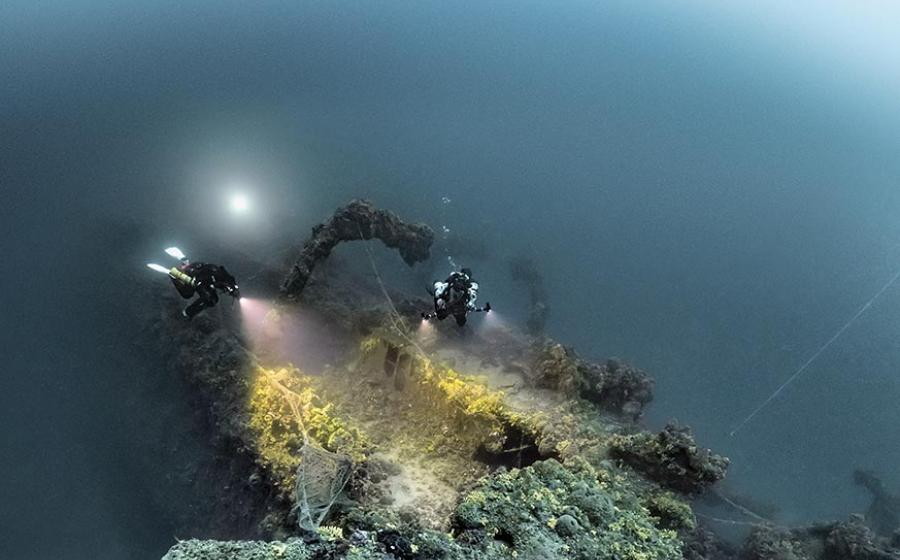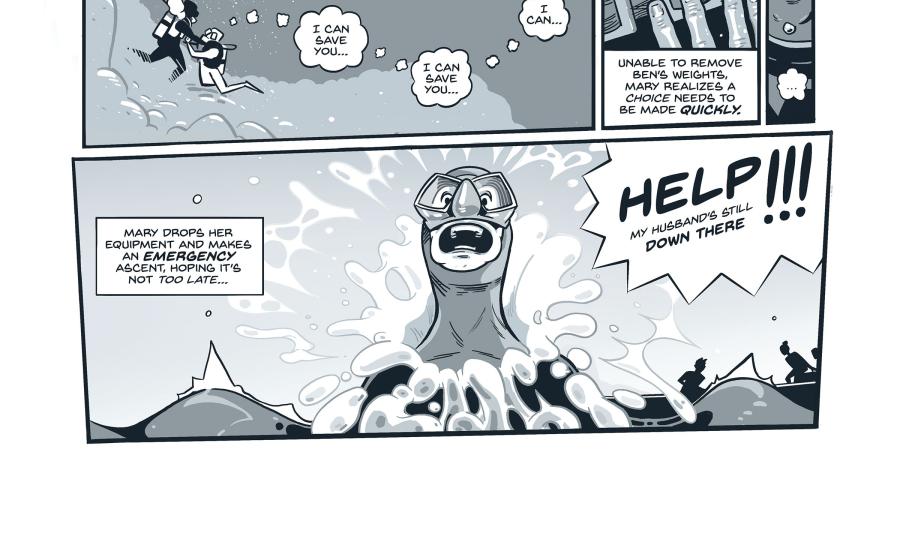Brazilian Instructor Who Dares Carries the 2016 Olympic Torch

NAUI WorldwideOlympic Torchbearer, Gilson Rambelli
“The ancient Greeks believed that fire was given to humankind by Prometheus and considered fire to have sacred qualities,” according to the International Olympic Committee. “The Olympic flame represents the positive values that man has always associated with fire.”
Gilson Rambelli, 51, of São Paulo, Brazil, became part of Olympic history as he carried the Olympic torch in the torch relay ritual of the modern Olympic Games. On May 28, Rambelli was one of thousands of candidates to carry the spirit of the flame in its trip through Brazil.
About 300 towns hosted the relay, and another 200 watched the convoy pass by. In addition to athletes and celebrities, the honor of torchbearer is presented to local residents with a record of community service, and being selected as a torchbearer is considered a high honor.
“It was a lot of emotion. The Olympic flame is magic … contagious,” says Rambelli. “Words fail to describe what I felt. Maybe this will be my closest to the Olympic games that I will ever have! Sport has marked my life … for me, it is an indescribable honor.”
During his leg of the relay, Rambelli not only carried his leadership with him, but also he carried his wife, Karina, and two children, Anna and Enzo, for 200 meters before he passed the Olympic flame to the next torchbearer.
“My story begins with a basketball career that was marred by political problems ... miscommunication with technical staff. After this Olympic-dream frustration, I directed my energy and sportsmanship to diving and my academic life to archeology,” says Rambelli.
An active NAUI Instructor since 1997, Gilson is a pioneer researcher in underwater archaeology in Brazil.
“As there was no one in underwater archaeology in Brazil, I went to France in 1992 to study with the French prehistorian Denis Vialou,” he says. “When I returned to Brazil, I started to develop this study area here.”
He earned his master’s degree (1998) and a doctorate (2003) in archaeology from the Universidade de São Paulo and held a post-doctoral fellowship (2004-2007) in underwater archaeology at the Universidade Estadual de Campinas. He is a professor of underwater archaeology at the Universidade Federal de Sergipe, where he is the leader of the Research Group in Archaeology of the Aquatic Environment — the only such in Brazil.
Rambelli sees his diving career as an integral step in his pathway to leadership. “I usually say that diving is good for the soul. It’s almost a return to the womb,” he says.
According to Rambelli, most archaeologists see underwater archaeology as something only for adventurers. For divers, underwater archaeology is a natural.

NAUI WorldwideGilson Rambelli and wife, Karina, carry the Olympic torch in Brazil
In January 2016, when it was announced that the Rio Games would be the Brazilian Games, President Carlos Nuzman told the press, “We promised to involve the entire country, ensuring it would be an event made by Brazilians, for Brazilians and with a Brazilian spirit for the world to enjoy.”
The 2016 Olympic Torch Relay began on April 21, 2016, with the lighting of the flame at the temple of Hera in Olympia, Greece. The flame was handed over to the Brazilian organizers on April 27. Traveling to each one of Brazil’s 26 state capitals and through more than 500 cities and towns, it will be carried by more than 12,000 runners to the Maracaña Stadium in Rio de Janeiro for the opening ceremony of the Brazil Olympiad on August 5.
For Rambelli, extending his vision of leadership to future generations of divers is more than just a goal; it’s an expectation. He takes pride in making sure his students project themselves beyond where they once were.
“I encourage them so much to dare and have courage because they must go beyond that,” he says. “I have to achieve with my archaeological work and produce knowledge that all people can identify with. What is under the water belongs to everyone. The archaeologist is the one who is well-prepared to make this contribution, and he needs to present the results to society.”
To learn more about Gilson Rambelli’s contributions, watch the video sponsored and produced by Nissan.










